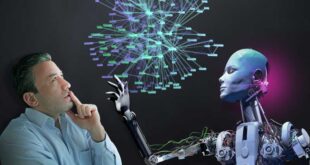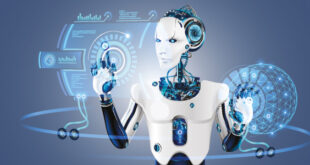Introduction to Artificial Intelligence (AI)
Imagine a world where machines not only assist us but also enhance our daily lives in unimaginable ways. Welcome to the era of Artificial Intelligence (AI). This technology is more than just a buzzword; it’s a transformative force that’s reshaping how we live, work, and interact with one another. From smart assistants like Siri and Alexa guiding our daily tasks to advanced algorithms predicting health trends, AI is becoming an integral part of human life.
As we stand on the brink of this technological revolution, it’s worth exploring the myriad benefits AI brings to our existence today and what it promises for our future. Let’s dive into how AI is currently being utilized and uncover its potential to make life easier, safer, and more efficient. The journey ahead is fascinating!
How AI is Currently Being Used in Human Life
Artificial Intelligence is woven into the fabric of our daily lives. From personal assistants like Siri and Alexa to recommendation systems on Netflix and Amazon, AI enhances our experiences in countless ways.
In healthcare, AI analyzes medical data to assist doctors in diagnosing conditions more accurately. This technology not only speeds up patient care but also improves treatment outcomes.
In finance, algorithms predict market trends, helping investors make informed decisions swiftly. Chatbots provide customer support around the clock, addressing queries without human intervention.
Transportation sees a revolution with self-driving cars that promise safer roads while reducing human error. Smart traffic management systems optimize vehicle flow, minimizing congestion in urban areas.
Education is being transformed by personalized learning platforms powered by AI that adapt to individual students’ needs and pace. All these applications demonstrate just how integral artificial intelligence has become in enhancing various aspects of human life today.
Advantages of AI in Human Life:
Artificial Intelligence is transforming human life in remarkable ways. One significant advantage is the increased efficiency and productivity it offers. Tasks that once took hours can now be completed in minutes, freeing up time for more creative pursuits.
Moreover, AI enhances decision-making processes. It analyzes vast amounts of data quickly, providing insights that help individuals and organizations make informed choices. This capability leads to better outcomes across various sectors.
AI also plays a crucial role in performing dangerous or tedious tasks. From industrial robots handling hazardous materials to virtual assistants managing our schedules, AI takes on challenges that may pose risks to humans.
These benefits showcase how integrating AI into daily life not only streamlines operations but also enriches overall experiences by allowing us to focus on what truly matters—our well-being and creativity.
A. Increased Efficiency and Productivity
Artificial Intelligence has transformed the way we approach tasks. By automating routine processes, AI saves time and energy. This shift allows humans to focus on more complex and creative endeavors.
Consider industries like manufacturing or logistics. Robots equipped with AI can handle repetitive jobs at a pace that far exceeds human capability. The result? Increased output without compromising quality.
Moreover, in the office environment, AI tools streamline workflows. From scheduling meetings to analyzing data trends, these systems enhance productivity across various sectors.
Even in personal lives, smart home devices optimize daily routines. They manage schedules and control appliances efficiently.
With such advancements, it’s clear that adopting AI leads to significant improvements in efficiency—benefiting individuals and organizations alike.
B. Improved Decision Making
Artificial intelligence enhances decision-making processes across various sectors. By analyzing vast amounts of data quickly, AI can provide insights that humans might miss. It identifies patterns and trends, offering a clearer picture for informed choices.
In business, AI tools help leaders navigate market complexities. They analyze consumer behavior to forecast demand or suggest optimal pricing strategies. This level of precision allows companies to act swiftly and confidently.
Healthcare also benefits immensely from improved decision-making through AI systems. Physicians use algorithms to interpret medical data, leading to more accurate diagnoses and tailored treatment plans.
Moreover, in finance, AI evaluates risks effectively. Investors rely on it for real-time analytics that guide investment strategies and improve portfolio management decisions.
With continued advancements in technology, the potential for enhanced decision-making will only grow. This shift empowers individuals and organizations alike to make smarter choices every day.
C. Assistance in Dangerous or Tedious Tasks
AI is transforming the way we approach dangerous or tedious tasks. Robots equipped with artificial intelligence can take on jobs that pose significant risks to human safety.
For instance, in construction sites, drones are used for surveying and monitoring conditions without putting workers at risk. They can detect potential hazards from a safe distance.
In hazardous environments like chemical plants or nuclear facilities, AI-driven robots handle toxic substances and perform maintenance. This minimizes exposure to life-threatening situations.
On the other hand, repetitive tasks also benefit greatly from AI assistance. In manufacturing lines, machines streamline processes that would otherwise exhaust human workers. By automating these duties, employees are freed up for more strategic roles.
The blend of technology with everyday labor paves the way for safer workplaces while boosting overall productivity across various sectors.
Potential Future Applications of AI:
The future holds exciting possibilities for artificial intelligence across various fields. In healthcare, AI could revolutionize patient care by enabling personalized medicine. Imagine algorithms that analyze genetic information to tailor treatments specifically for individuals.
Education may also see transformative changes with AI-driven tools that adapt learning experiences. These platforms can assess students’ strengths and weaknesses in real-time, creating tailored lesson plans that foster deeper understanding.
Transportation is on the brink of a major overhaul too. Self-driving cars promise safer roads while reducing traffic congestion through smart navigation systems. Public transport might become more efficient as AI optimizes routes based on real-time data.
As we delve into these advancements, it’s clear that the potential applications of AI are vast and varied, paving the way for innovations we have yet to imagine. The future beckons with opportunities waiting to be explored.
A. Healthcare
AI is revolutionizing healthcare in remarkable ways. From diagnostics to treatment plans, its impact is profound.
One of the most exciting applications is in medical imaging. AI algorithms can analyze X-rays and MRIs with speed and accuracy that often surpasses human capabilities. This allows doctors to catch diseases earlier than ever before.
In addition, AI-powered chatbots are transforming patient interactions. They provide immediate responses to health inquiries, streamlining access to information while reducing wait times for consultations.
Moreover, personalized medicine is gaining traction through AI’s ability to assess genetic data. Tailored treatments based on individual profiles ensure better outcomes and fewer side effects.
Predictive analytics helps hospitals manage resources efficiently by anticipating patient admissions and optimizing staff allocation. This not only improves care but also enhances overall operational efficiency within healthcare systems.
B. Education
Artificial Intelligence is transforming education in remarkable ways. With AI, personalized learning experiences are becoming the norm. Students can progress at their own pace, receiving tailored resources that cater to their unique needs.
AI-driven platforms analyze data on student performance and engagement. This insight helps educators identify areas where students may struggle and adjust their teaching strategies accordingly.
Furthermore, intelligent tutoring systems provide additional support outside traditional classroom hours. These tools offer immediate feedback and guidance, making learning more accessible.
Administratively, AI streamlines processes like grading assignments or managing schedules. Teachers spend less time on paperwork and more time focusing on what truly matters—student interaction.
The integration of virtual classrooms powered by AI also opens doors for remote learners worldwide. Education becomes a global endeavor with fewer barriers to entry than ever before.
C. Transportation
Transportation is on the brink of a revolution thanks to artificial intelligence. Self-driving cars are no longer just a concept; they’re becoming part of our daily lives. These vehicles use AI algorithms to navigate roads, reducing accidents and improving traffic flow.
Public transport systems also benefit from AI. Smart routing can optimize bus schedules, ensuring that commuters spend less time waiting and more time getting where they need to go.
Moreover, ride-sharing platforms leverage AI for efficient matching between drivers and passengers. This minimizes wait times and maximizes convenience for users.
AI is not limited to personal travel; it’s transforming logistics too. Companies rely on intelligent systems for route optimization in freight delivery, cutting costs while speeding up shipments.
As these advancements continue, we can expect safer streets and faster journeys—benefits that could reshape urban life entirely.
Concerns and Limitations of AI:
As we embrace the advancements of AI, some concerns emerge. Job displacement is a significant issue. Automation can replace tasks traditionally performed by humans, leading to uncertainty in employment for many.
Bias in AI systems is another critical area of concern. If algorithms are trained on flawed data, they may perpetuate existing inequalities or create new biases in decision-making processes.
Privacy issues also arise with the use of AI. The collection and analysis of vast amounts of personal data can lead to potential misuse or breaches that infringe on individual rights.
Ethical dilemmas surrounding accountability become apparent as well. Who is responsible when an AI system makes a mistake? This question remains largely unanswered, creating unease about relying too heavily on technology for important decisions.
These challenges require careful consideration as society continues to integrate artificial intelligence into various aspects of daily life.





